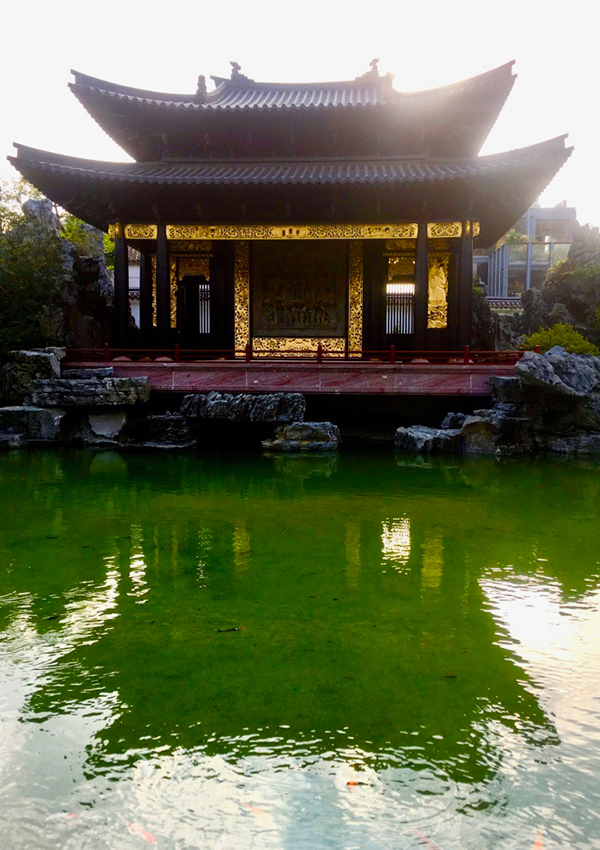An opera museum that sings throughout the ages


The Cantonese Opera Art Museum's grounds are gardens built in the area's traditional Lingnan style. [PHOTO BY ERIK NILSSON/CHINA DAILY]
But Huaguang watched the show and realized it didn't actually denigrate heaven.
So, he instructed the performers to pack the ends of long bamboo poles with gunpowder and sulfur, and ignite them.
The Jade Emperor saw the smoke and believed the bamboo theaters had been incinerated.
Performers worship Huaguang at temples and at the museum, especially on the 28th day of the ninth month of the lunar calendar, which is believed to be his birthday.
He's also believed to have protected the iconic and fire-prone "red boats" aboard which opera troupes lived and traveled during the Qing Dynasty (1644-1911) and the Republic of China period (1912-49).
Each troupe of 158 performers would have two vessels with about 80 people each-one called "heaven" that housed singers and instrumentalists, and another called "Earth" for wing chun masters.
The museum also hosts indoor and outdoor stages that can accommodate hundreds of audience members and regularly stages free shows.
One hall portrays the internationalization of Cantonese Opera, which was put on the UNESCO Intangible Cultural Heritage List in 2009.
Such Western instruments as the saxophone, piano and symphonic instruments were introduced in the 1930s. And several productions are regularly performed overseas in English and Malay.
The Cantonese Opera Art Museum has indeed contributed to the preservation of the ancient performance art and traditional Cantonese culture in modern times, in its birthplace and lands afar-much like a beautiful song wafting through time and space.


